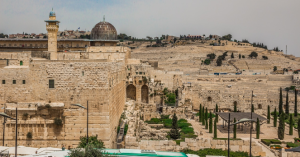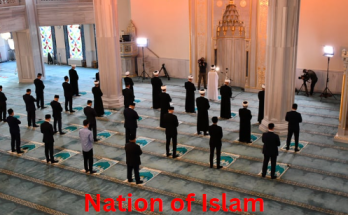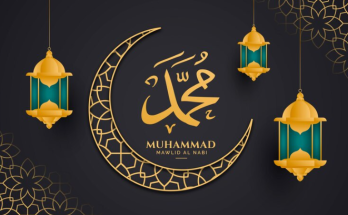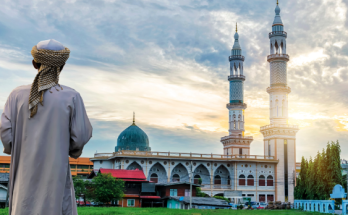العصر الذهبي للإسلام
العصر الذهبي للإسلام هو فترة تاريخية مشهود لها بالتطور الثقافي والعلمي الهائل الذي حظي به العالم الإسلامي في الفترة ما بين القرن الثامن والقرن الرابع عشر الميلاديين. كانت هذه الفترة من أكثر الفترات ازدهارًا وتقدمًا في تاريخ الإسلام، وشهدت تحقيقاً مذهلاً في مجالات مثل العلوم، والفلسفة، والطب، والرياضيات، والأدب، والفنون، والهندسة، وغيرها من المجالات.
تعتبر بداية العصر الذهبي للإسلام مرتبطة بتأسيس الدولة الأموية في العام 661م، حيث كانت تعتبر دمشق عاصمتها. ومنذ ذلك الحين، بدأ العالم الإسلامي في تحقيق نمو فاعل وشامل في مجالات العلم والثقافة. ازدهرت المكتبات والجامعات والمراكز العلمية في مختلف أنحاء الدولة الأموية والدولة العباسية لتصبح مراكز تجذب العلماء والباحثين من مختلف أنحاء العالم.
واحدة من أهم الإسهامات التي قدمها العصر الذهبي للإسلام هي الحفاظ على المعرفة القديمة وترجمتها وتطويرها. قدم العلماء المسلمون ترجمات للأعمال الفلسفية والعلمية اليونانية والرومانية والهندية والفارسية إلى اللغة العربية، وعملوا على تطويرها ونشرها في العالم الإسلامي. وهذا الجهد الهائل في الترجمة والاستيعاب ساهم في تطوير العلوم والمعرفة في العالم الإسلامي.
تأثر العصر الذهبي للإسلام بالثقافات المختلفة، واستوعب العلماء الإسلاميون الأفكار والمعارف من شرق آسيا وأوروبا، وجعلوا منها جزءًا من التراث العربي الإسلامي. تم تطوير المعرفة الفلسفية والعلمية في العالم الإسلامي من خلال الحوار مع الثقافات الأخرى، وبناءً على ذلك، ازدهرت العلوم والفنون والأدب في هذه الفترة.
الرياضيات والعلوم الفيزيائية كانت من أهم المجالات التي تم تطويرها خلال العصر الذهبي. قدم العلماء المسلمون مساهمات هامة في مجالات الجبر والهندسة والجيولوجيا والفيزياء والفلك. ومن أبرز العلماء في هذا المجال الذين تركوا إرثًا رائعًا هم الخوارزمي والبيروني وابن الهيثم والجابر وغيرهم.
كما تم تطوير الطب في هذه الفترة، حيث قدم العلماء المسلمون اكتشافات هامة في مجال الطب والصيدلة وعلم الأدوية. تأثر العصر الذهبي للإسلام بالطب اليوناني والهندي، وأسهم في ترجمة ودراسة الأعمال الطبية القديمة وتطويرها. وتم إنشاء المستشفيات والصيدليات في العالم الإسلامي لتقديم الرعاية الطبية وتطبيق العلاجات المبتكرة.
في مجال الأدب والفلسفة، ازدهرت الشعراء والكتاب والفلاسفة في العصر الذهبي. تطور الأدب العربي والشعر والنثر بشكل كبير، وكتب العديد من الأعمال الأدبية الرائعة. وقدم الفلاسفة المسلمون تفسيرات فلسفية وأفكارًا في اللاهوت والأخلاق والميتافيزيقا. وتأثرت الثقافة الإسلامية بالأعمال الفلسفية اليونانية والهندوسية والفارسية.
كما ازدهرت الفنون في العصر الذهبي للإسلام. تم تطوير العمارة الإسلامية وبناء المساجد والقصور والحمامات العامة والجسور. تأثرت العمارة الإسلامية بالفنون البيزنطية والفارسية والهندية، وأصبحت تتميز بالتصميمات الهندسية المعقدة والزخارف الجميلة. كما تطورت الفنون التشكيلية مع إنتاج لوحات ومنحوتات فنية رائعة.
في ختام الكلام، العصر الذهبي للإسلام يعتبر فترة مهمة ومشرقة في تاريخ الإسلام والعالم بشكل عام. كانت فترة من التقدم العلمي والثقافي والفكري، وأسهمت في تطور المعرفة والحضارة الإسلامية. وتبقى إرث هذا العصر حتى يومنا هذا، حيث يحتفظ العالم بإسهامات العلماء والمفكرين الإسلاميين في مختلف المجالات.
The golden age of Islam
The golden age of Islam is a historical period marked by the tremendous cultural and scientific development enjoyed by the Islamic world between the eighth and fourteenth centuries AD. This period was one of the most prosperous and progressive in the history of Islam, and it witnessed astonishing realization in fields such as science, philosophy, medicine, mathematics, literature, arts, engineering, and other fields.
The beginning of the golden age of Islam is linked to the establishment of the Umayyad dynasty in the year 661 AD, when Damascus was considered its capital. Since then, the Islamic world has begun to achieve an active and comprehensive growth in the fields of science and culture. Libraries, universities and scientific centers flourished throughout the Umayyad and Abbasid states, becoming centers that attracted scholars and researchers from all over the world.
One of the most important contributions made by the golden age of Islam was the preservation, translation and development of ancient knowledge. Muslim scholars provided translations of Greek, Roman, Indian and Persian philosophical and scientific works into Arabic, and worked to develop and disseminate them in the Islamic world. This tremendous effort in translation and assimilation contributed to the development of science and knowledge in the Islamic world.

The golden age of Islam was influenced by different cultures, and Islamic scholars absorbed ideas and knowledge from East Asia and Europe, and made them part of the Arab-Islamic heritage. Philosophical and scientific knowledge was developed in the Islamic world through dialogue with other cultures, and accordingly, science, arts and literature flourished in this period.
Mathematics and the physical sciences were among the most important fields developed during the Golden Age. Muslim scholars made important contributions in the fields of algebra, geometry, geology, physics, and astronomy. Among the most prominent scholars in this field who left a wonderful legacy are Al-Khwarizmi, Al-Biruni, Ibn Al-Haytham, Al-Jaber and others.
Medicine was also developed in this period, as Muslim scholars made important discoveries in the field of medicine, pharmacology and pharmacology. The golden age of Islam was influenced by Greek and Indian medicine, and contributed to the translation, study and development of ancient medical works. Hospitals and pharmacies were established in the Islamic world to provide medical care and apply innovative treatments.
In the field of literature and philosophy, poets, writers, and philosophers flourished in the Golden Age. Arabic literature, poetry and prose developed greatly, and he wrote many wonderful literary works. Muslim philosophers provided philosophical interpretations and ideas in theology, ethics, and metaphysics. Islamic culture was influenced by Greek, Hindu and Persian philosophical works.
The arts also flourished in the golden age of Islam. Islamic architecture was developed and mosques, palaces, public baths and bridges were built. Islamic architecture was influenced by Byzantine, Persian and Indian arts, and became characterized by complex geometric designs and beautiful decorations. The plastic arts also developed with the production of wonderful artistic paintings and sculptures.
In conclusion, the golden age of Islam is an important and bright period in the history of Islam and the world in general. It was a period of scientific, cultural and intellectual progress, and it contributed to the development of Islamic knowledge and civilization. The legacy of this era remains to this day, as the world preserves the contributions of Islamic scholars and thinkers in various fields.


